Russian Classical Music
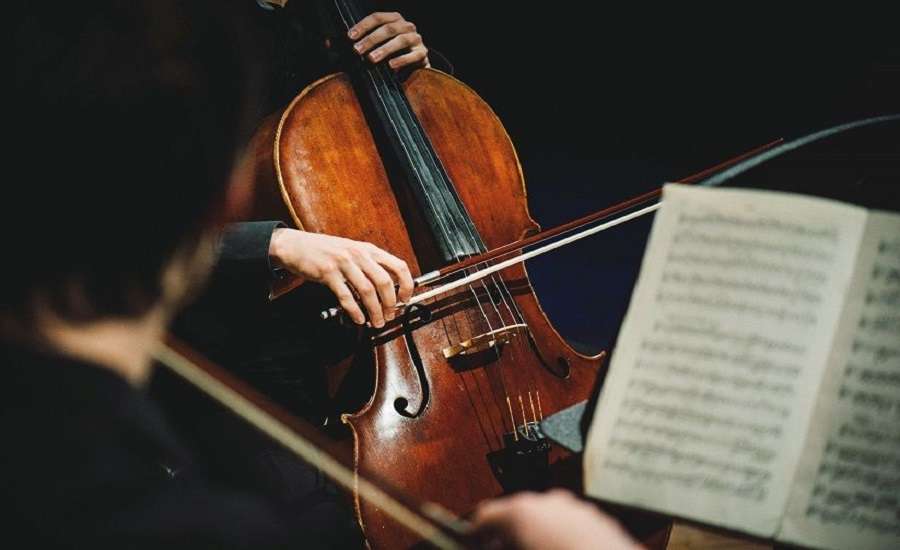
A Timeline of Russian Classical Music
- Until the 18th century, Russian music consisted mainly of church music, folk songs and music for dances. Among the bourgeoisie, Italian, French, and German operas were especially popular.
- Two opposing groups of composers were founded in the 19th century: the Russian Music Society, a pro-Western association of composers led by the brothers Anton and Nikolay Rubinstein and the "Mighty Handful", a group of composers known for using elements of Russian folk and religious music and folk themes in their works. Among the most famous members of the "Mighty Handful" are Rimsky-Korsakov, Mussorgsky and Balakirev.
- In the beginning of the 20th century, romances written and performed in the Russian, Caucasian, Gypsy and Italian styles became popular in Russia. The greatest and most popular singers of the romance movement were Fyodor Shalyapin, Alexandr Vertinsky, Konstantin Sokolsky and Pyotr Leshchenko.
- In the 20th century, the pressure of the Soviet authorities caused many artists to leave the Soviet Union. At the same period a musical underground of folk-oriented and rock groups formed. Magnitizidat recorded and distributed forbidden folk, rock, and jazz works in small batches.
- After Communism fell, many exiled artists including Vladimir Horowitz and Mstislav Rostropovich returned to Russia to continue producing and performing their music. During this period, much of Russian rock music lost the creativity of its underground period and tended towards imitating Western groups in style.
When people decide to visit Russia, they endure the headaches that come with obtaining a visa and the long and arduous flight. (If you are not from the Antipodes or thereabouts you have no right to complain about the flight – ed.) But what all these tourists have in common is that they appreciate the art, architecture, and history of Russia, and want to learn more about it. Classical music is one of the most highly-revered arts in Russia. Russian classical music has a distinctive history, separate from Western Europe and at the same time highly influenced by Western countries. Some of the most internationally-renowned composers came St. Petersburg and Moscow as well as from smaller towns. Ballet music composers, opera composers, and even jazz musicians all made their mark in Russia's history. Tchaikovsky, Rachmaninoff and Shostakovich are only some of the big names that every music lover will recognize, but there are many more that have their roots in Russia. The following article briefly explains classical music's place in Russian history, its evolution, and current position.
The Eighteenth and Nineteenth Centuries
Russia consists of dozens of different ethnic groups, each of which have their own forms of traditions and folk music. During the Soviet era, music was highly scrutinized and kept within certain boundaries of content and innovation. After the fall of the USSR, Western style rock and pop music became the most popular forms in Russia, perhaps because they symbolized democracy, freedom, and a cultural divide from the repressive Communistic rule. But before the Soviet era, Russian composers and musicians were innovative and influential.
Until the 18th century, Russian music consisted mainly of church music, folk songs and dances. In the 1700s, Italian, French, and German operas were introduced to Russia, making opera a popular art form among the bourgeoisie.
In the 19th century, Russia began making an original contribution to world music nearly as significant as its contribution in literature. In the first half of the century, Mikhail Glinka (1804-57) initiated the application of purely Russian folk and religious music to classical compositions. His operas Ruslan and Lyudmila and A Life for the Tsar, are considered ground-breaking works in the establishment of Russian national music, although they are loosely based and modeled on Italian opera.
In 1859 the Russian Music Society was founded to foster musical performances and appreciation for classical music from Western Europe. The most influential figures in the society were the composer Anton Rubinstein and his brother Nikolay, who founded influential conservatories in Moscow and St. Petersburg (Anton Rubinstein also was one of the best pianists of the 19th century).
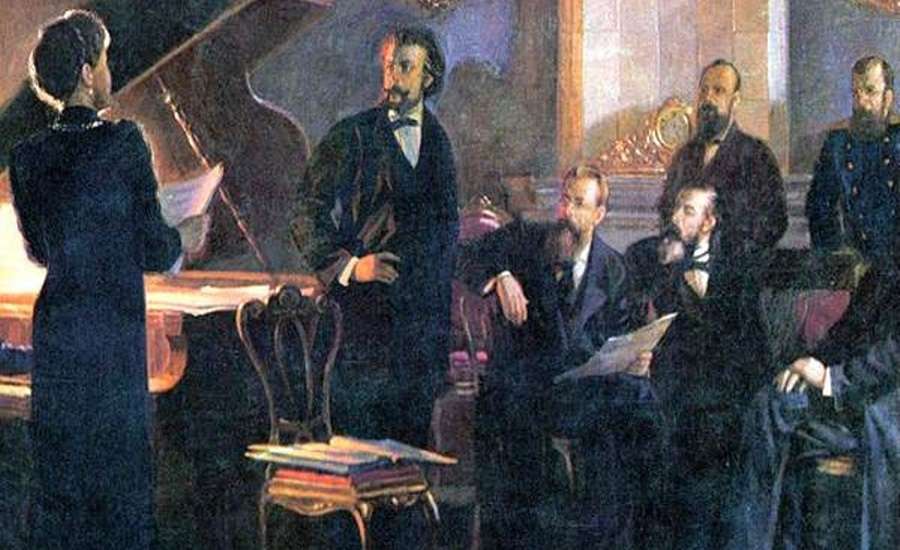
In the second half of the 19th century, a group of composers that came to be known as the "Mighty Handful" or the "Mighty Handful" – Miliy Balakirev, Aleksandr Borodin, Cesar Cui, Modest Mussorgsky, and Nikolay Rimsky-Korsakov – continued Glinka's movement away from the imitation of European classical music by adding in elements of Russian folk music and tales. Although most of them wrote Western-influenced music, this group challenged the Russian Music Society's conservatism with a large body of work thematically based on Russia's history and legends and musically based on its folk and religious music; not surprisingly, the two groups were more or less rivals. Among the Mighty Handful’s most notable works are Rimsky-Korsakov's symphonic suite Scheherazade and the operas The Snow Maiden and Sadko, Mussorgsky's operas Boris Godunov and Khovanshchina, and Borodin's opera Prince Igor. Balakirev, a protégé of Glinka, was the founder and leader of this group.
Peter Ilyich Tchaikovsky stood outside this group. While he didn’t take sides in the above-described ideological battle (he was too busy writing music), his music did to a large extent resemble Western European music. He produced a number of enduring symphonies, operas, and ballets, and even during his lifetime he was considered one of the world's premier composers.
The generation that followed the Mighty Handful and Tchaikovsky in the late nineteenth century included talented and innovative figures such as Sergey Rachmaninoff, a genius pianist and composer, who immigrated to Germany in 1906, Rimsky-Korsakov's student Aleksandr Glazunov, who emigrated from Russia in 1928 and Aleksandr Skryabin, who injected elements of mysticism and literary symbolism in his piano and orchestral works. Prominent Russian (and, due to the time in which they composed, Soviet) composers of the 20th century include Stravinsky, Prokofiev, and Shostakovich.
Traditional music didn’t die out among all this internationalism. In the late ninteenth century, Count Uvavrov led a campaign of nationalist revival which spawned the first professional orchestras with traditional instruments, beginning with Vassily Andreyev, who used the balalaika in an orchestra late in the century. Just after the dawn of the 20th century, Mitrofan Pyatnitsky founded the Pyatnitsky Choir of rural peasant singers.
The Soviet Era
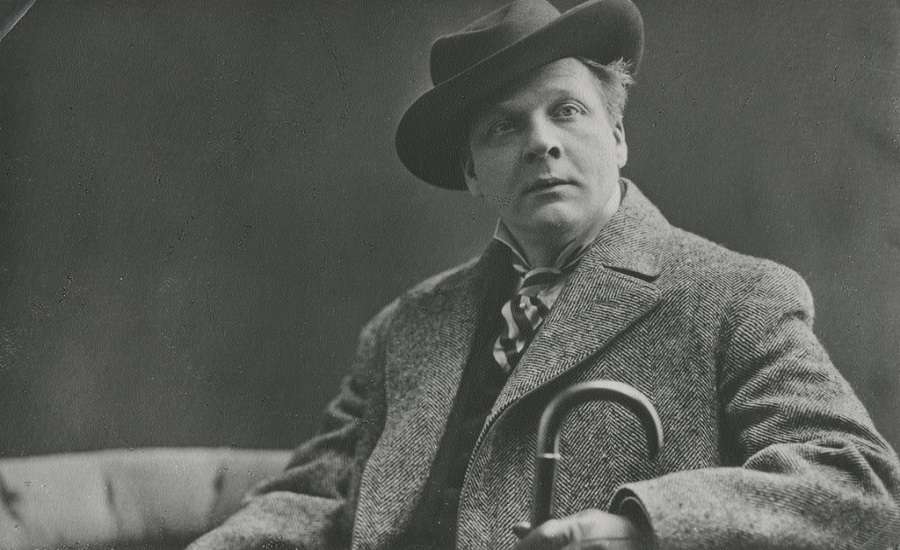
In the 1910s romances in exotic Russian, Caucasian, Gypsy and Italian styles became popular in Russia. The greatest and most popular singers of romances – chief among them Fyodor Shalyapin – usually sang in operas at the same time they were pursuing this newer genre of popular music. Singers, for example Alexandr Vertinsky, Konstantin Sokolsky and Pyotr Leshchenko, usually composed music and wrote lyrics themselves, However, experimentation did not prosper much with the onset of Soviet rule and oppression.
In the 20th century, Russia continued to produce some of the world's foremost composers and musicians, despite the suppression by Soviet authorities of music and other artistic thought, ideas, and performances. Restrictions on what musicians played and where they performed caused many artists to leave the Soviet Union either voluntarily or through forced exile, but the works of the emigrants continued to draw large audiences whenever they were performed. In the 1960s, Vyacheslav Shchurov organized concerts featuring folk singers from all over Russia. Shchurov thus attracted a wave of ethnomusicologists, who recorded rural folk musicians. Perhaps the most important group to follow in Shchurov's wake was the Dmitri Pokrovsky Ensemble. Moreover, a group of musicians called bards arose at the same time. They were generally ignored by the state, but bards like Vladimir Vysotsky's helped lead a popular return to traditional music.
The same period spawned the birth of Russian rock, which all began with the band Pojuschie Gitary. They created a style called VIA and later released the first Russian rock opera, Orpheus and Eurydice. Other rock bands of the era included Tcvety, Sinyaya Ptica and Golubiye Gitary.
By the 1980s, popular folk-oriented groups had arisen. The Cossack Kazachy Krug and Pesen Zemli became the most popular. A musical underground (magnitizdat) also arose, where poetic and satirical musicians like Bulat Okudzhava and Vladimir Vysotskiy gained black market fame playing jazz and rock music. They also set their poetry to music and became popular entertainers with a satirical message. Magnitizidat also recorded and distributed forbidden folk, rock, and jazz works in small batches.
Jazz performances were permitted by all Soviet regimes, and jazz became one of Russia's most popular music forms. In the 1980s, the Ganelin Trio was the best known Russian jazz combo, performing in Europe and the United States. Jazz musicians from the West began playing regularly in the Soviet Union in the 1980s.
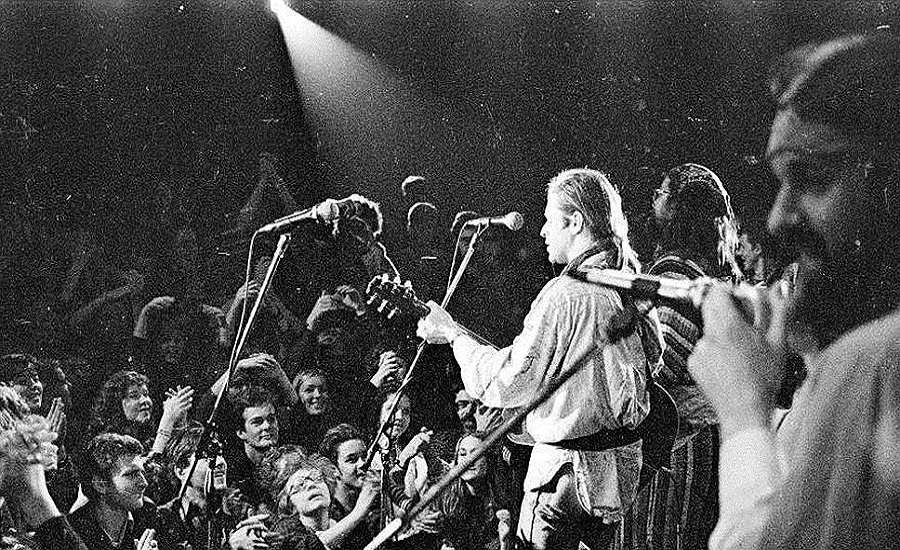
Rock music on the other hand was strictly controlled by Soviet Authorities, and recordings were strictly limited. Nonetheless, Russia's youth was fascinated with the rock music of the West. Later in the 80s, when the Communist regime began to weaken, there was more of a liberal atmosphere concerning music in Russia. Several notable Soviet rock groups emerged which were considered innovative, and such groups proliferated throughout the 80s. The Leningrad Rock Club, one of a national network of performance clubs in 1986, was the most important outlet for sanctioned rock music.
Post-Soviet Era
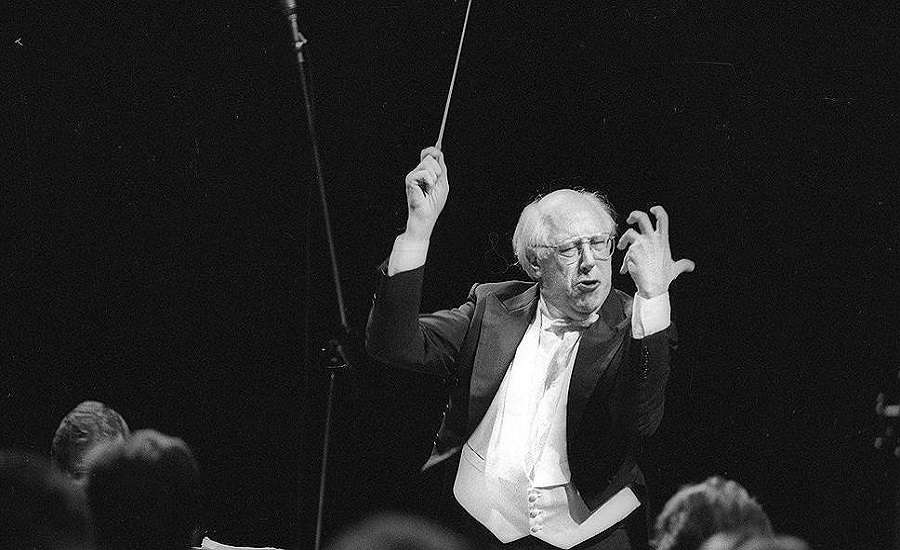
After Communism fell and democracy was restored in the former Soviet Union, the Gorbachev era loosened many of the restrictions placed on creative thought and the arts, and many artists returned back to their homeland to continue producing and performing their music. The pianist Vladimir Horowitz, who left the Soviet Union in 1925, made a successful return performance in Moscow in 1986, and cellist Mstislav Rostropovich returned to Russia as a conductor on tour with the National Symphony Orchestra of Washington D.C. Rock music, however, seemed to have lost that innovative, satirical, and unique edge of the magnitizdat period, and experts have noted the tendency of rock groups to simply imitate Western groups in style.



